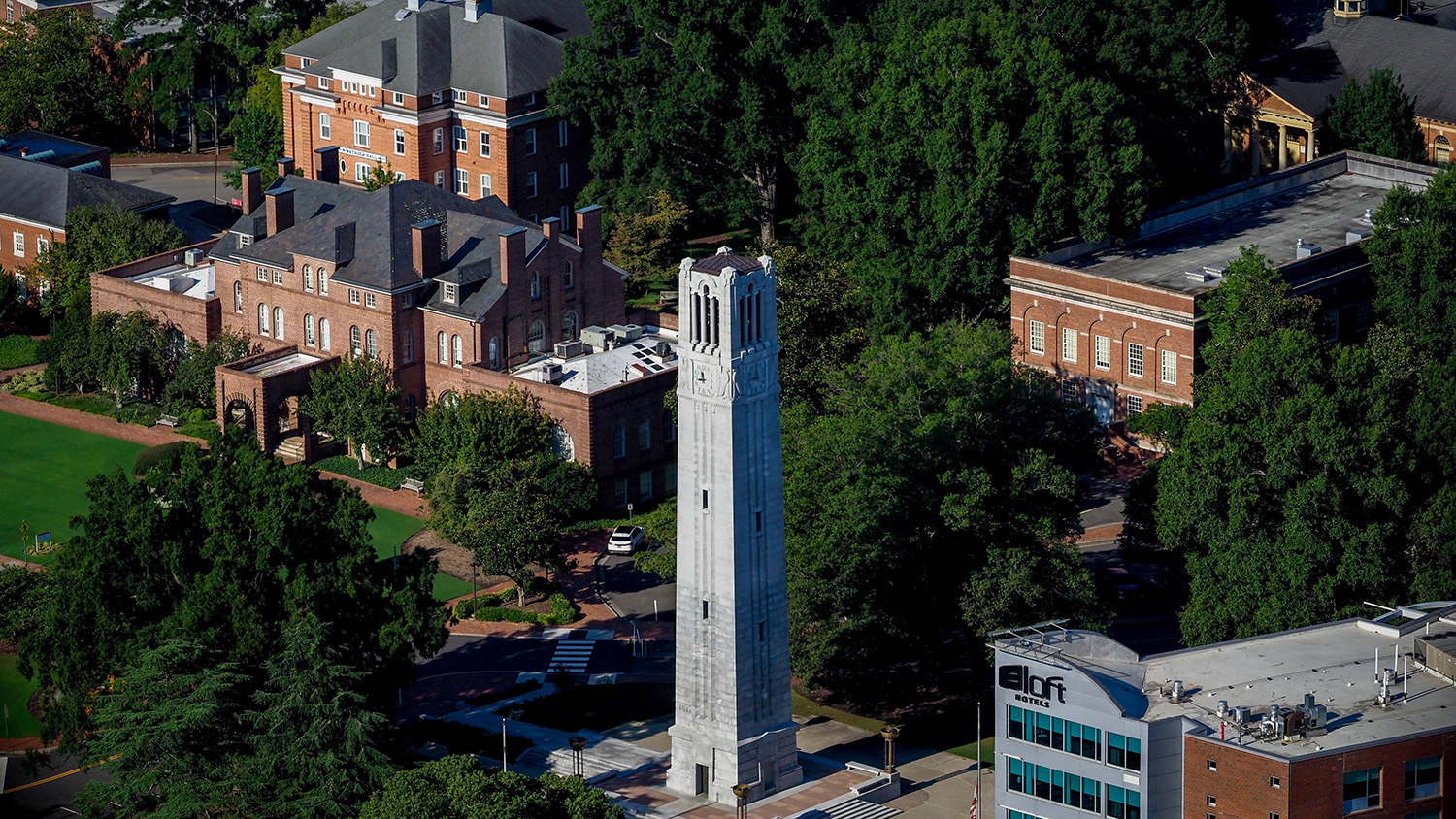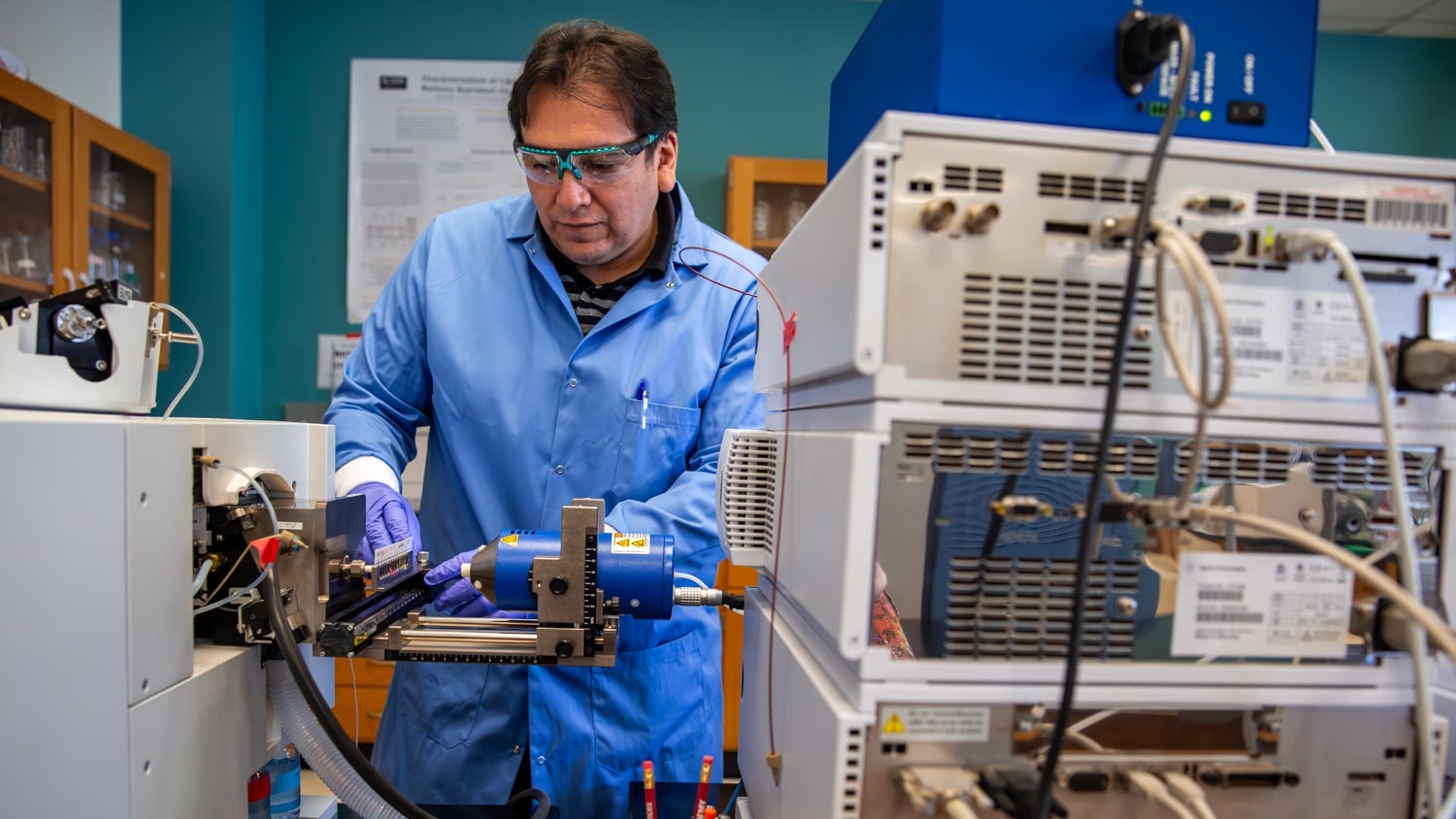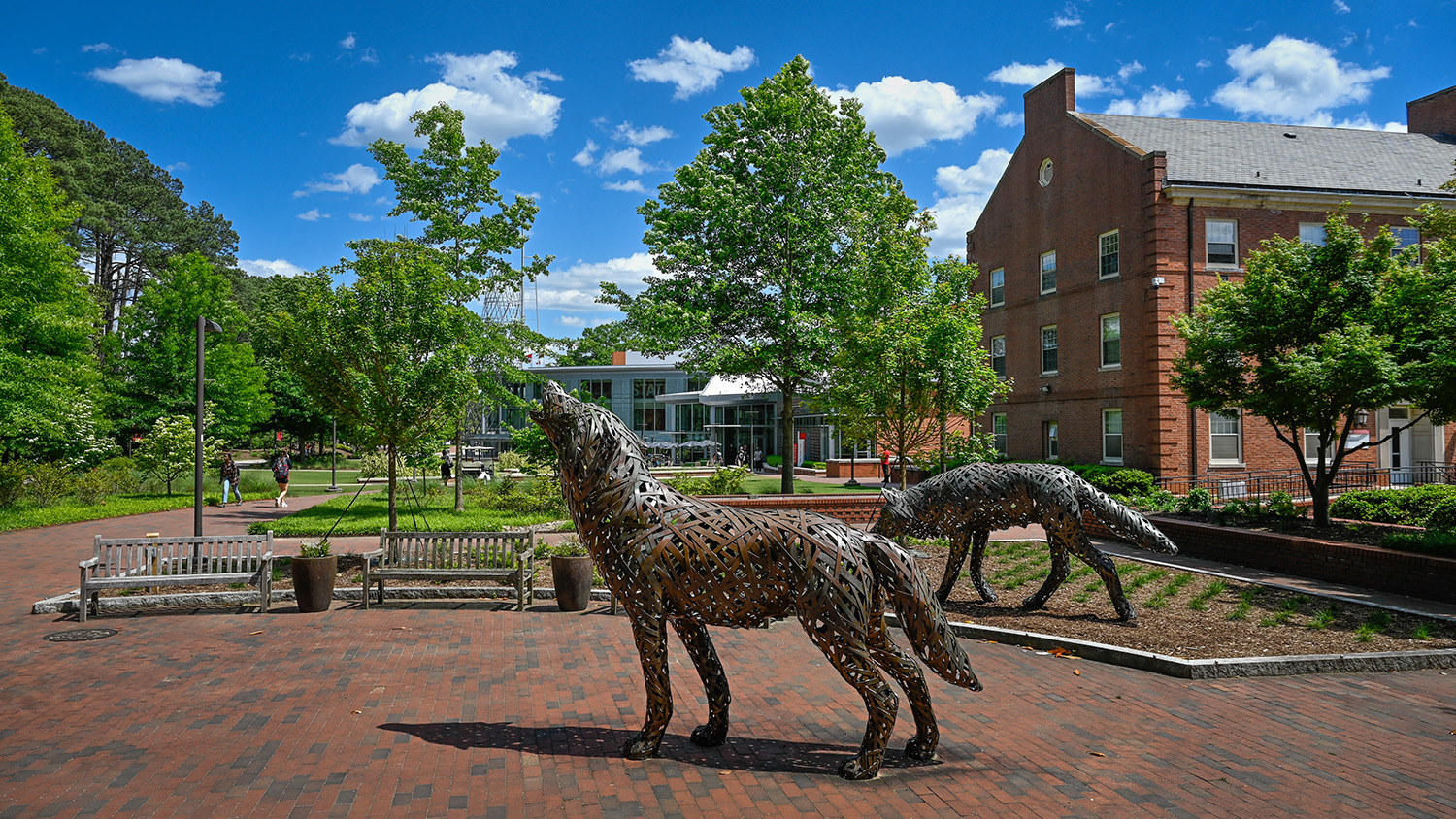Wynne Plans to Retire in 2012
Dean Johnny C. Wynne will retire next July after more than eight years at the helm of the College of Agriculture and Life Sciences. His association with NC State spans half a century.
CALS is one of the largest colleges at NC State, with more than 5,000 students in two-year, four-year and graduate programs. The college is also the home of the North Carolina’s Cooperative Extension Service and Agricultural Research Service. With offices in every North Carolina county, Cooperative Extension is NC State’s largest outreach effort.
“Dean Wynne’s experience and insights with regard to North Carolina agriculture have been invaluable to me and many others on campus and across the state,” Provost Warwick Arden said.
From Student to Dean at NC State
Wynne, a native of the Bear Grass community in Martin County, spent his academic and professional life in CALS. He received a bachelor’s degree in crop science from NC State in 1965, a master’s in 1968 and a Ph.D. in 1974.
He first worked in the college in 1965 as a graduate research assistant. He joined the faculty in 1968 as a crop science instructor, progressing through the academic ranks to full professor in 1983. He taught undergraduate and graduate plant breeding and conducted peanut breeding research until 1989, when he was appointed head of the Department of Crop Science. Three years later, in 1992, he was named associate dean and director of the Agricultural Research Service.
Wynne was named interim dean in May 2003 and appointed to the position permanently in December 2004.
Career Milestones
As research service director, Wynne guided work in the agricultural, environmental and life sciences at campus and field laboratories and at agricultural research stations across North Carolina. A Genomic Sciences Laboratory was established to equip researchers and students for advanced biological research.
During Wynne’s tenure as dean, programs supported value-added agriculture, including local foods and a growing wine grape-producing and wine-making industry. Faculty members with bioprocessing expertise were hired and programs developed to support biofuels production. Cooperative Extension programs protected water quality across the state and helped North Carolinians battle obesity.
The Plants for Human Health Institute and Extension’s NC MarketReady program were created as part of the North Carolina Research Campus in Kannapolis, a public-private venture to advance nutrition, agriculture and biotechnology.
In addition, the college created the Center for Plant Breeding and Applied Plant Genomics during Wynne’s time as dean. NC State boasts one of the largest public plant breeding programs in the world.
Diversity efforts included naming an assistant dean for diversity, outreach and engagement, creating a Diversity Council and launching Opening Doors, a program designed to increase awareness among faculty and staff. In addition, advising programs were added for students interested in pursuing post-graduate study in health-related fields.
Several major building projects were completed over the last seven years, with renovations of David Clark Labs, Polk Hall, Schaub Hall and Thomas Hall (formerly South Gardner Hall).
The Lake Wheeler Road Field Laboratory just south of the Raleigh city limits was expanded with a Turfgrass Field Laboratory, Feed Mill Educational Unit, new poultry and swine facilities, structural pest control site, and soil and water erosion facilities.
- Categories:


